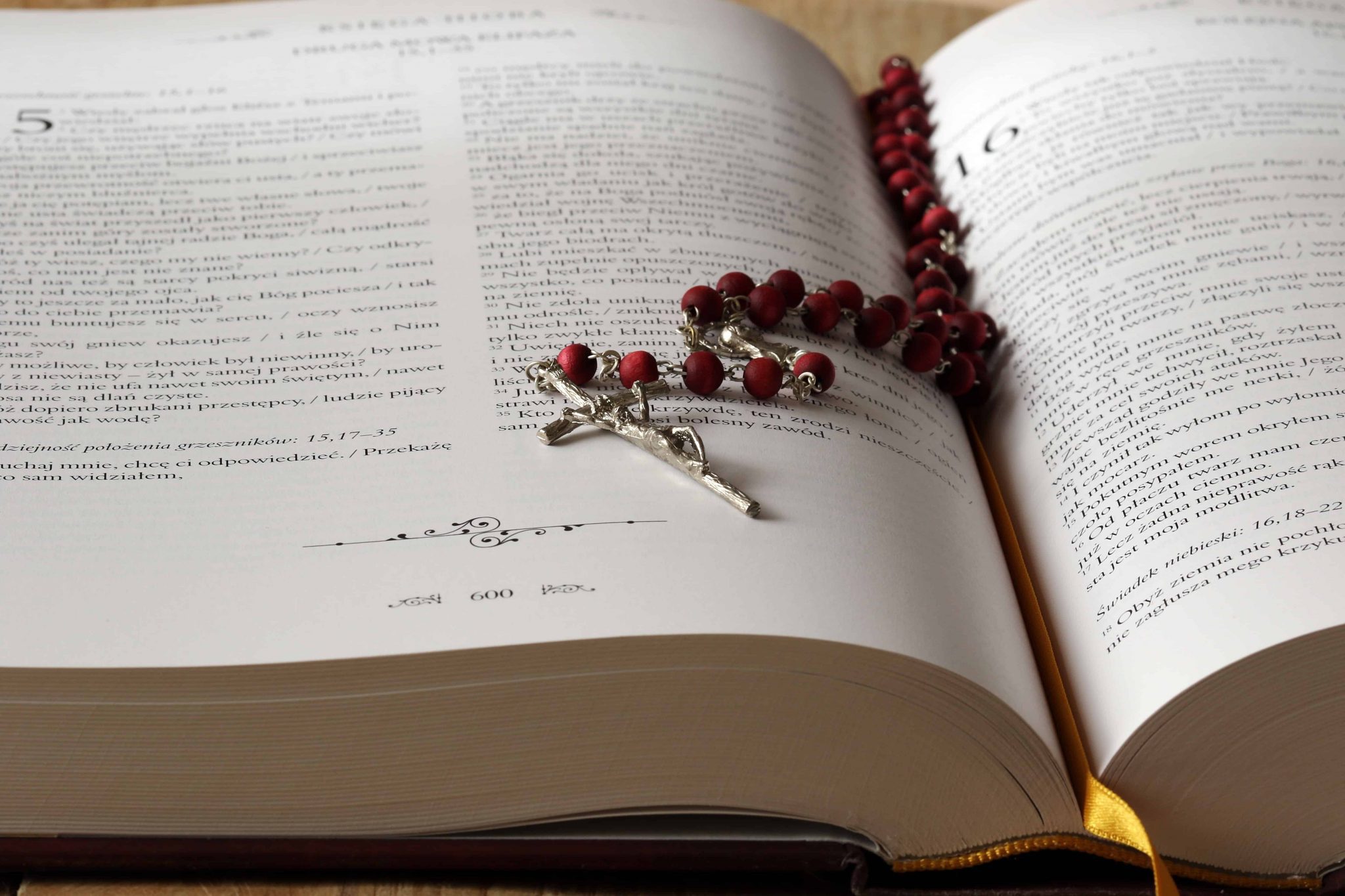Solemnity of the Most Holy Body and Blood of Christ
The Mass makes present the once-and-for-all sacrifice of Jesus on the cross. Therefore, to enter into the spirit of the Mass, we must “proclaim the death of the Lord” (1 Cor 11:26) and offer our bodies to the Lord as living sacrifices (Rm 12:1). The spirit of the Mass is the spirit of sacrifice. Thus it is important to fast before Mass, deny ourselves, and take up our crosses each day (Lk 9:23) with the intention of uniting ourselves to Jesus crucified (see Gal 2:19) and sacrificed (see Heb 9:26). Through our “good deeds and generosity” (Heb 13:16), we make sacrifices pleasing to the Lord. We can unite these sacrifices with Jesus’ sacrifice on Calvary and fill up in our own bodies what is lacking in the “sufferings of Christ” (Col 1:24).
The Holy Mass is not the proclamation and perpetuation of our sacrifices but rather of His sacrifice. However, the Mass is the participation of our sacrifices in His. Live the Mass. Live a life of sacrifice. Through Jesus, “let us continually offer God a sacrifice of praise” (Heb 13:15).
The Most Holy Trinity
Where is the word Trinity in the Bible? You won’t find it! The Trinity is a mystery revealed by God and handed on to us through Sacred Tradition (see Catechism of the Catholic Church, 78, 234).
Jesus provides trinitarian clues in the Bible. “If you love Me and obey the commands I give you, I will ask the Father and He will give you another Paraclete — to be with you always: the Spirit of truth, Whom the world cannot accept, since it neither sees Him nor recognizes Him; but you can recognize Him, because He remains with you and will be within you” (Jn 14:15-17).
God is one essence in three Persons. The greatest minds in the history of the Church have wrestled with understanding the Trinity. We’ll never be able to fully grasp this divine truth. But as beloved children of the Father (1 Jn 3:2), our starting point is trust. Let the Lord speak to your heart; focus on the relationships. God is eternal community. Love best illuminates the nature of the Trinity (see 1 Jn 4:8, 16).
God the Father chose us (Eph 1:4). Jesus, our older Brother, leads us (Heb 2:10-11). The Holy Spirit resides within us (1 Cor 6:19). Grow strong through prayer in the Holy Spirit, persevere in God’s love, and welcome the mercy of Jesus (see Jude 20-21). Immerse yourself in the Trinitarian love of God.
Pentecost Sunday
Today’s Gospel relates how the Risen Jesus gave his apostles a foretaste of Pentecost on the evening of Easter Sunday by appearing to them and sending them to carry on the mission given him by his Heavenly Father. He then empowered them to do so by breathing upon them and saying, “Receive the Holy Spirit.” On the day of Pentecost, Jesus fulfilled his promise to send the Advocate or Paraclete. The gift of the Spirit would enable them to fulfill Jesus’ commission to preach the Gospel to all nations. Today’s Gospel passage also tells us how Jesus gave to the Apostles the power and authority to forgive sins. “Receive the Holy Spirit. For those whose sins you forgive, they are forgiven; for those whose sins you retain, they are retained.” These wonderful words, which bind together inseparably the presence of the Holy Spirit with the gift of forgiveness, are referred to directly in the Sacrament of Reconciliation. But they have a much wider meaning. Those words remind us of the Christian vocation we all have, to love and forgive as we have been loved and forgiven in the world of today, which is often fiercely judgmental and vengeful.
Seventh Sunday of Easter
Jesus tried to tell us we had power to overcome all demons and to cure diseases (Lk 9:1). He told us we could “cure the sick, raise the dead, heal the leprous, expel demons” (Mt 10:8). He even promised we would do greater by far than He ever did, if we only believed in Him (Jn 14:12).
However, Jesus saved the best till last. Before His Ascension, the risen Jesus, with nail-scarred hands and a hole in His side, was speaking to the apostles concerning the signs that would accompany those who had professed their faith (Mk 16:17). Jesus mentioned five signs: expelling demons, speaking new languages, handling serpents, drinking poison without suffering harm, and healing the sick (Mk 16:17-18). “No sooner had He said this than He was lifted up before their eyes in a cloud which took Him from their sight” (Acts 1:9). Jesus ascended “into heaven and took His seat at God’s right hand” (Mk 16:19).
When a Man has split the clouds and left planet earth behind, He’s certainly proven Himself to be an expert on signs. When Jesus says to us: “You will receive power when the Holy Spirit comes down on you” (Acts 1:8), He knows what He’s talking about.
